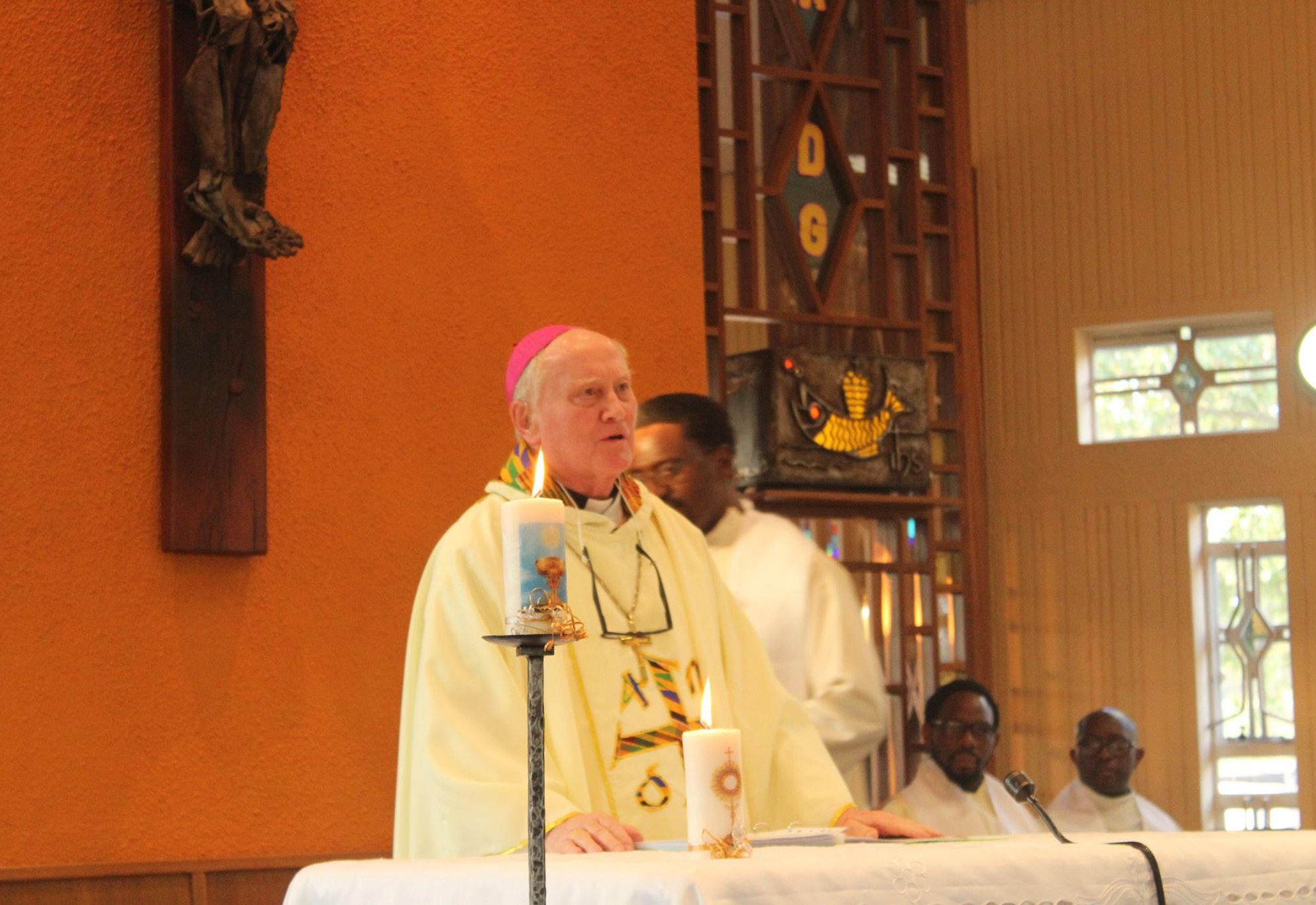
3 minute read
Editorial- Finding God
Rev. Johnson Mlambo Archdiocese of Harare
The Eucharist - the meeting point of God and Man
Advertisement
Man is born with a desire for God (cf. Catechism of the Catholic Church, i.e., CCC 27), hence, a Christian’s life can be talked of as an endeavour to find God, or striving to be and remain in communion with him. For Catholics the Eucharist is central to both Man’s quest for God and his finding God. It is so because it is the desire for God that takes people to Mass. Christ, their God, whom they seek, is present in four ways during Mass: (i) in the assembled people of God, for he said, “Where two or three are gathered together in my name, there am I in the midst of them” (Mt. 18:20); (ii) in the person of the minister, for it is the same Christ, through the ministry of priests, who offers the same sacrifice he formerly offered on the cross, the offering of himself; (iii) in the Word of God, since it is He Himself who speaks when the holy scriptures are read in the Church, and (iv) Christ is especially present, in the Eucharist broken and shared (cf. Vatican II Document - Sacrosanctum Concilium, 7). So, in the Eucharistic celebration God descends on the altar to meet his people gathered around the altar who ascend to him by raising up their minds and hearts to him.
Virtual Eucharistic Participation, whither are we drifting?
Due to the Coronavirus pandemic the current restriction of fifty congregants per given time may compel some parishioners, at least occasionally, to shift to Virtual Eucharistic Participation. Virtual Eucharistic Participation can be described as following – on the internet – the proceedings of Mass being celebrated at a given parish. Loosely speaking, it can be talked of as attending Mass online. However, a number of pertinent questions arise from this phenomenon, such as: Can one say one has really attended Mass by Virtual Eucharistic Participation? How does one make the prayers of the liturgy incarnate in one’s own home? Will there be any active participation of the faithful, which the Vatican Council II encourages? Does Virtual Eucharistic Participation not lead to the privatisation of faith and the growth of the sense of alienation that arises from isolation from the Christian community? Will Virtual Eucharistic Participation not give way to a culture, especially among the youths, of instantaneous gratification? In this kind of culture one does not see the need for physical presence to satisfy social, and even religious and spiritual needs. Are there ways that the virtual Mass can provide at
What Does the Church Say?
According to the Pontifical Council of Social Communication, participation in a virtual Mass cannot constitute the fulfilment of celebrating the Eucharist. It says, “Virtual reality is no substitute for the Real Presence of Christ in the Eucharist, the sacramental reality of the other sacraments, and shared worship in a flesh-and-blood human community. There are no sacraments on the Internet; and even the religious experiences possible there by the grace of God are insufficient apart from real-world interaction with other persons of faith” (The Church and the Internet, 9 ). In his homily at his morning Mass in the chapel of his residence on the 17th of April 2020, Pope Francis said that, “This is the church in a difficult situation that the Lord is allowing, but the ideal of the church is always with the people and with the sacraments – always”. While Masses, prayers and faith-based initiatives have been offered online, and the faithful have been encouraged to make an act of Spiritual Communion given their lack of access to Holy Communion, it must be noted that “this is not the church,” the Pope said. He went on to say that one’s relationship with Christ “is intimate, it is personal, but it is in a community,” and this closeness to Christ without the community, without the Eucharist, without the
His Lordship Emeritus Bishop Dieter Scholz SJ preside over Mass at Arrupe Jesuit University (AJU)



people of God assembled together and “without the sacraments is dangerous” because people could start living their relationship with God “for just myself, detached from the people of God.” From the above it can be inferred that the role of virtual reality, at its best, is










